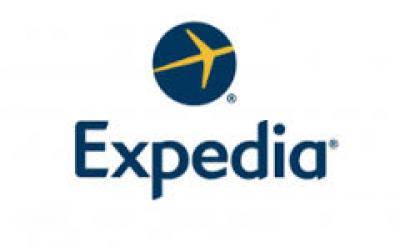SYDNEY, 3 February, 2016, - Expedia.com®, one of the world’s largest full service online travel sites, has released the results of the Expedia Passenger Preferences Index, a worldwide study that examines the preferences and behaviours of fliers on a country-by-country basis.
The study was conducted on behalf of Expedia(R) by Northstar, a globally integrated strategic insights consulting firm and surveyed 11,026 travellers across 22 countries in Asia Pacific, Europe, North America and South America.
Looking at the habits of Kiwi travellers, the study reported Kiwi fliers are among the most active in the world. Almost a third (31%) of Kiwis have flown more than five times in the past two years.
This was above the global average of 27% and follows closely behind other APAC nations such as India, (38%), Singapore (36%) and China (35%). The most frequently flying nations were Norway (47%) and Mexico (42%). ![]()
Expedia.co.nz travel expert, Kelly Cull, says: “Our study shows that Kiwis are after simple pleasures when flying and are content with a full belly and comfortable space when in the air”.
Kiwis Prioritise Full Meals and Extra Leg Room
Kiwi respondents were given a range of amenities to choose and asked to select the ones they would be willing to pay extra for on flights of different length, defined as 0-3 hours, 4-6, 7-12, 12+ hours.
On a long-haul flight (7-12 hours), more than 6 in 10 Kiwis (62%) said they would be willing to pay extra for a full meal (breakfast, lunch or dinner) over any other amenity.
A seat with extra leg room was the second-most common selection, chosen by 44% of Kiwi respondents, followed by inflight entertainment (38%).
Kiwis were also willing to pay out for inflight entertainment with its importance increasing as the duration of the flight increased (25% of medium-haul fliers, 38% of long-haul fliers and 39% of extra long-haul fliers).
Globally, a full meal was consistently selected as the amenity fliers would be most likely to pay for across flight durations. Australia and Canada were consistently the top two nations most unwilling to pay for in-flight extras across different flight lengths.
Eat, sleep and strike up a conversation – how Kiwis pass the time on a flight
Comfort comes first for Kiwis dressing for a flight – 91% of respondents said they dress for comfort and didn’t care how they looked, leaving only one in ten (9%) to choose chic planewear over comfort.
When asked which strategies Kiwis would employ to endure a long haul flight over 10 hours, 80% of Kiwis indicated they would sleep to pass the time, followed by eating (71%), utilising inflight entertainment (69%) and reading (64%).
Kiwis were the nation most intent on staying active on a long flight, with 51% saying they would walk around the cabin versus a global average of less than third (31%).
Passenger Preferences Index respondents were also offered a long list of items and asked to select five that they felt they couldn’t live without on a flight. Worldwide, the top five items were water, a meal, a phone/mobile device, headphones and magazines or newspapers.
Following suit, Kiwi respondents also rated water as the number one item they couldn’t live without when flying (58%), followed by a meal (40%), headphones (30%), phone/mobile device (29%) and a physical book (21%).
For travellers from Mexico, South Korea and Thailand, a mobile device was considered more essential than water.
Baggage Fees and Carousels Avoided
Whilst close to two thirds (64%) of Kiwi travellers say they avoid baggage fees at all costs, they were among the nations least likely to let excess baggage fees impact how they pack their bags and fell below the global average of 70%.
The motivations behind not checking a bag included avoiding waiting at the baggage carousel (35%), not having to queue at check-in counters (33%) and fear the bag would be lost (25%).
This article originally published in EBT Travel News

